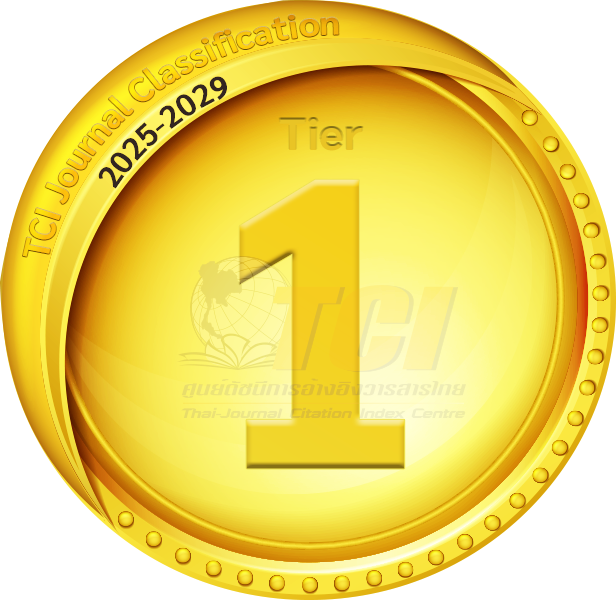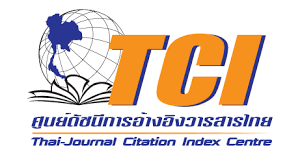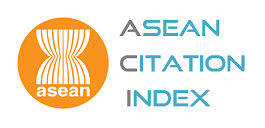Technology and Election Administration in Nigeria
- Ariyo Andrew Tobi, Department of Public Administration, Olabisi Onabanjo University, Ago-Iwoye,Ogun State, Nigeria, E-mail: tobi.ariyo@oouagoiwoye.edu.ng
Abstract
In this study, election administration in Nigeria between 2015 and 2019 was analyzed with the view to ascertaining the extent to which the deployment of technology enhances the credibility of the electoral process. The study employed secondary data obtained from textbooks, journals, and newspapers and adopted the instrumentalism theory of technology as a framework of the analysis. The findings showed that the appalling and fraudulent electoral process that is characterized by rigging led to the deployment of technology in election administration in Nigeria. The use of technological devices such as permanent voterscards and smartcard readers has spawned contradictory ramifications for the electoral process. On the other hand, the deployment of technological devices in the registration and accreditation of voters is seen to have made the electoral process more transparent and credible. However, the utility of these technological devices is being vitiated by poor handling and inadequacy of internet facilities. Besides, there are some fraudulent practices such as vote-buying, underage voting, and lack of internal democracy that are undermining the credibility of the electoral process. The study concluded that the adoption of technology has, to a large extent, transformed the election administration in Nigeria, though there are still challenges and impediments to be surmounted. The study recommended that electoral officers should be adequately trained on how to handle the technological devices and that functional internet facilities should be put in place for the optimal performance of technological devices. It further recommended that efforts should be made to reform modalities for the conduct of party primaries as well as regulate prohibitive nomination fees for political office aspirants. Finally, it suggested that stiff penalties for underage voting and vote-buying among others should be institutionalized.
Keywords: Credible elections, democracy, election administration, permanent voter’s card, Smart card readers, technology
References
Adebayo, T. H. (2015). INEC says card reader test successful, admits 41% fingerprint failure. Premium
Times. Retrieved from https://www.premiumtimesng.com/news/headlines/178264-inec-says-card-reader-test-successful-admits-41-fingerprints-verification-failure.html
Adebowale, S. (2015). Card reader constitutional, says INEC. The EagleOnline. Retrieved from https://theeagleonline.com.ng/card-reader-constitutional-says-inec/
Agbata, C. F. (2018).Technology, INEC and the 2019 general elections. The Punch. Retrieved from https://punchng.com/technology-inec-and-the-2019-general-elections/
Agbu, O. (2015). Election rigging and the use of technology: The smart card reader as the joker in Nigeria’s 2015 presidential election. Journal of African Elections, 15(2), 90-111.DOI: 10.20940/JAE/2016/v15i2a5
Ajayi, K. (2007). Election administration in Nigeria and the challenges of the 2007 elections. The Social Sciences, 2(2), 241-251.
Akinsanya, A. (2015). Free and fair: The administration and the conduct of the 2015 Nigerian general
election. Retrieved from https://www.inecnigeria.org/wp-content/uploads/2019/02/Conference-Paper-by-Adeoye-Akinsanya.pdf
Alebiosu, E. A. (2016). Smart card reader and the 2015 general elections in Nigeria. Journal of African Elections, 15(2), 69-89. DOI: 10.20940/JAE/2016/v15i2a4
Ayeni, T. P., & Esan, A. O. (2018). The Impact of ICT in the Conduct of Elections in Nigeria. American Journal of Computer Science and Information Technology, 6(1). DOI:10.21767/2349-3917.100014
Carroll, L. S. L. (2017). A comprehensive definition of technology from an ethological perspective. Social Sciences, 6(4), 126-146.
Editorial-Punch Newspaper. (2018). Prohibitive party nominations fee. The Punch.Retrieved from https://punchng.com/prohibitive-party-nomination-fees/.
Grubler, A. (2003). Technology and global change. Cambridge, UK: Cambridge University Press.
Harris, J. P. (1934). Election Administration in the United States. Washington DC, US: The Brookings Institution.
Idowu, K. R. (2015). INEC statement on card reader demonstration. Independent National Electoral
Commission. Retrieved from https://inecnigeria.org/?inecnews=inec-statement-on-card-reader-demonstration
Joseph, R. A. (1991). Democracy and prebendal politics in Nigeria.The rise and fall of the second republic. Cambridge, UK: Cambridge University Press.
Independent National Electoral Commission (INEC). (2015). 2015 presidential election result.
Retrieved from http://wp1.inecnigeria.org/news-all/2015-presidential-election-result/
Independent National Electoral Commission (INEC). (2019a). All About 2019 General Elections. Retrieved from http://www.inec.gov.ng/all- abot-2019-general-elections/
Independent National Electoral Commission (INEC). (2019b). Presidential Election Results. Retrieved from https://www.inecnigeria.org/wp-content/uploads/2019/03/2019-GE-PRESIDENTIAL-ELECTION-RESULTS.pdf
International Republican Institute (IRI). (2003). Nigeria: final reports, general election. Retrieved from https://aceproject.org/ero-en/regions/africa/NG/nigeria-final-report-general-elections-iri-2003/view
Isuwa, S. (2019). Between smart card reader and election in Nigeria. The Leadership Newspaper. Retrieved from https://leadership.ng/2019/03/08/between-smart-card-reader-and-elections-in-nigeria/
Kupoluyi, A. (2018). Exorbitant party nomination fees. The Punch. Retrieved from https://punchng.com/exorbitant-party-nomination-fees/.
National Democratic Institute (NDI). (2007). Final NDI Report on Nigeria’s 2007 Elections. Retrieved from https://www.ndi.org/sites/default/files/2313_ng_report_election07_043008.pdf
Ndujihe, C.,& Kumolu, C. (2015). Are the polls really credible, free and fair?. Vanguard.Retrieved from https://www.vanguardngr.com/2015/05/2015-are-the-polls-really-credible-free-and-fair/
Nigeria Civil Society Situation Room. (2019). 2019 elections: Smart card reader challenges. Retrieved from https://www.plac.ng.org/situation_room/sr/2019-elections-smart-card- reader-challenges/
Nwafor, C. (2015). Publication of the register of voters for the 2015 general election. Retrieved from https://www.inecnigeria.org/wp-content/uploads/2019/02/National-Publication-of-Register-of-Voters.pdf
Nwafor, C. (2019). Enhancement of the accreditation system for the voting process in Nigeria. Retrieved from https://www.id4africa.com/2019_event/presentations/InF12/2-Chidi-Nwafor-INEC-Nigeria.pdf
Nwangwu, C. (2015). Biometric voting technology and the 2015 general elections in Nigeria. Retrieved from https://www.inecnigeria.org/wp-content/uploads/2019/02/Conference-Paper-by-Chikodiri-Nwangwu-1.pdf
Open Election Data Initiative. (n.d.). Election data guide. Retrieved from https://openelectiondata.net/en/guide/electoral-integrity/credible-elections/
Oyewamide, O. & Oguntuase, S. (2018). Party Nomination Fees Fuel Corruption, Say Activists, Others. Independent Newspapers Limited. Retrieved from https://www.independent.ng/party-nomination-fees-fuel-corruption-say-activists-others/
Tobi, A. A., & Oikhala, G. I. (2018). The police and election administration in Nigeria. Journal of Public Administration, Finance and Law, 14(2018), 85-94.
Wahab, S. A., Rose, R. C., & Osman, S. I. W. (2012). Defining the concepts of technology and technology transfer. A literature analysis. International Business Research, 5(1), 61-72.
Yakubu, M. (2017). The use of biometric voter authentication system. Experience, issues and way forward. Retrieved from http://www.id4africa.com/2017_event/Presentations/2-F5-3_Independent_Electoral_Commission_Prof._Mohammed_Kuna.pdf.
Yahaya, H. (2019). 2019 election petitions across Nigeria increase to 766. Premium Times. Retrieved from https://www.premiumtimesng.com/news/to

Indexed in


Search